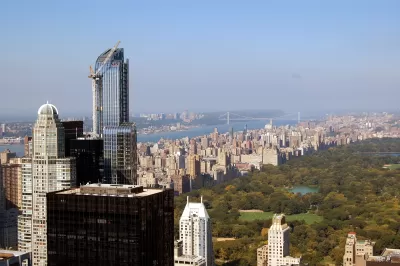Homeowners in almost every corner of the United States are making more off the accruing value of their homes every hour than minimum wage workers. In some cases, homeowners are even making a lot more than decent middle class wages.

A post on the Zillow Research digs into the amount of money homeowners are making in equity in large cities around the United States—finding that owning a home pays better on an hourly basis than many jobs in today's real estate market.
For instance, "[t]he typical U.S. homeowner is gaining $7.09 of equity in their home every working hour, $0.16 less than federal minimum wage." And, "[h]ome values in San Jose, Calif., San Francisco and Seattle have been appreciating more than 3.5 times faster per working hour than the cities’ minimum wage workers earn." In San Jose's case, more than 3.5 times faster is quite a bit more: "In San Jose, the typical homeowner is gaining $99.81 of equity in their home every hour they’re at the office. The city’s hourly minimum wage is $13.50."
In all, "owners of the median-valued home in 24 of the nation’s 50 largest cities earned more in equity per hour over the past year than their local minimum wage."
The analysis provides a new angle on equity, just days after a report by financial analytics company Black Knight found that homeowner equity reached a new record in 2017.
FULL STORY: Homes 'Earn' Minimum Wage or More in Almost Half the Nation's Largest Cities

Study: Maui’s Plan to Convert Vacation Rentals to Long-Term Housing Could Cause Nearly $1 Billion Economic Loss
The plan would reduce visitor accommodation by 25,% resulting in 1,900 jobs lost.

North Texas Transit Leaders Tout Benefits of TOD for Growing Region
At a summit focused on transit-oriented development, policymakers discussed how North Texas’ expanded light rail system can serve as a tool for economic growth.

Using Old Oil and Gas Wells for Green Energy Storage
Penn State researchers have found that repurposing abandoned oil and gas wells for geothermal-assisted compressed-air energy storage can boost efficiency, reduce environmental risks, and support clean energy and job transitions.

Private Donations Propel Early Restoration of Palisades Playground
Los Angeles has secured over $1.3 million in private funding to restore the Pacific Palisades playground months ahead of schedule, creating a modern, accessible space that supports community healing after recent wildfires.

From Blight to Benefit: Early Results From California’s Equitable Cleanup Program
The Equitable Community Revitalization Grant (ECRG) program is reshaping brownfield redevelopment by prioritizing projects in low-income and environmental justice communities, emphasizing equity, transparency, and community benefits.

Planting Relief: Tackling Las Vegas Heat One Tree at a Time
Nevada Plants, a Las Vegas-based nonprofit, is combating the city’s extreme urban heat by giving away trees to residents in underserved neighborhoods, promoting shade, sustainability, and community health.
Urban Design for Planners 1: Software Tools
This six-course series explores essential urban design concepts using open source software and equips planners with the tools they need to participate fully in the urban design process.
Planning for Universal Design
Learn the tools for implementing Universal Design in planning regulations.
Ascent Environmental
Borough of Carlisle
Institute for Housing and Urban Development Studies (IHS)
City of Grandview
Harvard GSD Executive Education
Toledo-Lucas County Plan Commissions
Salt Lake City
NYU Wagner Graduate School of Public Service




























